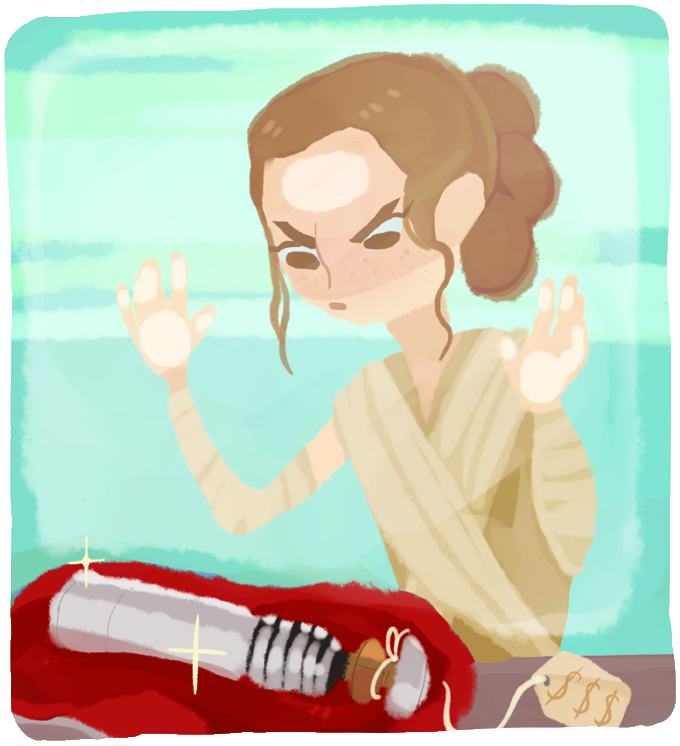A short time ago in an industry not so far away, the gaming empire Electronic Arts released a video game called “Star Wars Battlefront II” — but gamers should keep their wallets handy if they want the full game experience.
This sequel to the 2015 “Star Wars Battlefront” promised to add improvements and fix many of the problems gamers had with the first game, such as the lack of a compelling game mission like in previous Battlefront entries. The developers also promised that all of its downloadable content would be free and released gradually over time.
“Battlefront II” did remove the season pass that many gamers, myself included, had issues with, and added a campaign, more maps and new characters. But they included something that wasn’t at all necessary — microtransactions.
Microtransactions are small financial transactions made online, often within the context of online apps or digital gaming. When gamers make use of microtransactions, it usually involves the purchase of an online currency which they can use to get premium content in the game.
In “Battlefront II,” these microtransactions allow players to purchase loot boxes — random rewards in the form of star cards – after purchasing the game. These loot boxes can either be earned through normal gameplay or by buying the in-game currency required to obtain more.
By including microtransactions, developers wear down player willpower through tactics such as slowing player progression, implementing longer wait times and jacking up prices for items. Only the most patient — or skilled — gamers might have the willpower to avoid paying microtransactions, since not doing so would mean spending countless hours in the game to unlock a character they could get with an easy online payment.
All of this is meant to encourage players to bypass the tedious grinding with their cash. However, EA took this concept and went full-on Darth Sidious — a “Star Wars” antagonist who represents evil and tyranny — in “Battlefront II” with its loot boxes.
Microtransactions have been prevalent ever since mobile games like “Clash of Clans” and “Candy Crush” — both free-to-play games — proved to be a resounding success. Other companies began implementing microtransactions into their games, including $60 retail games like “Battlefront II.”
Microtransactions’ popularity with game designers largely comes from the ability to use psychological tactics to lure users into coughing up the cash. Tech journalist Joseph Farrell revealed in an October 2014 Huffington Post article how free-to-play games are designed around psychological techniques such as reciprocity, ego depletion and illusory discomfort to entice players to use microtransactions.
“These games know what makes us tick,” Farrell said. “And they know exactly how to get us to say yes.” “Battlefront II” made gamers tick, but it was more like a pipe bomb that blew up in company’s face.
By using these techniques to tempt gamers, designers can force gamers into a corner with two less-than-desirable options: toil away for days in front of the screen to unlock characters or pay up. One player did the calculations and found that it would take over 4,500 hours of playtime, or $2,100, to unlock all of the playable content in “Battlefront II.”
Players can technically unlock all of the content without having to pay, but that doesn’t mean EA should make it virtually impossible for people who don’t have 4,500 hours of spare time to grind for that in-game currency, tormented by rich gamers who pulled out their wallets to Force-choke people as Darth Vader.
EA tried to defend itself in a post on Reddit early last month, claiming the paywall gives players “a sense of pride and accomplishment.” The post has since become the most downvoted Reddit comment of all time.
In response to the outcry, the game producer lowered the cost of the game’s characters by 75 percent — but it still wasn’t enough to appease gamers. Gamers could pay for these characters with microtransactions. The company temporarily lowered the microtransactions in “Battlefront II,” but in the meantime, the company may be facing other, more serious repercussions.
The gaming fiasco caught the attention of Hawaiian and Belgian governments, who suspected the loot boxes in “Battlefront II” were a form of gambling. Chris Lee, a member of the Hawaiian House of Representatives, called out EA in a press conference Nov. 21 for predatory practices against young kids, calling the game “a Star Wars-themed online casino designed to lure kids into spending money,” The Belgian government also ruled the loot boxes to be a form of gambling, and will potentially ban them.
It’s good that Hawaii and Belgium stepped in when they did, since young children are susceptible to gaming addiction due to underdeveloped brain functions for impulse and decision-making — both qualities microtransactions take advantage of.
A study in Psychology Today found adolescents seem more prone to video game addiction than other age groups, and the addiction could also lead to personality factors like compulsiveness, poor social skills and an aptitude for violence.
EA can try to rationalize its decision to include loot boxes in the new game, but clearly the potential consequences it could have on gamers isn’t worth unlocking level after level. And certainly a game like “Star Wars Battlefront II” — one that isn’t free-to-play and is part of the mega-hit brand “Star Wars” — is unlikely to need microtransactions to be profitable.
Don’t waste your money this Christmas on “Star Wars: Battlefront II.” Though EA may think your source of “pride and accomplishment” can come from confronting a paywall, you’ll do better to keep your money and instead spend the holidays watching “Star Wars: The Last Jedi” over eggnog.
Thomas primarily writes about visual media and gaming for The Pitt News. Write to him at [email protected].


